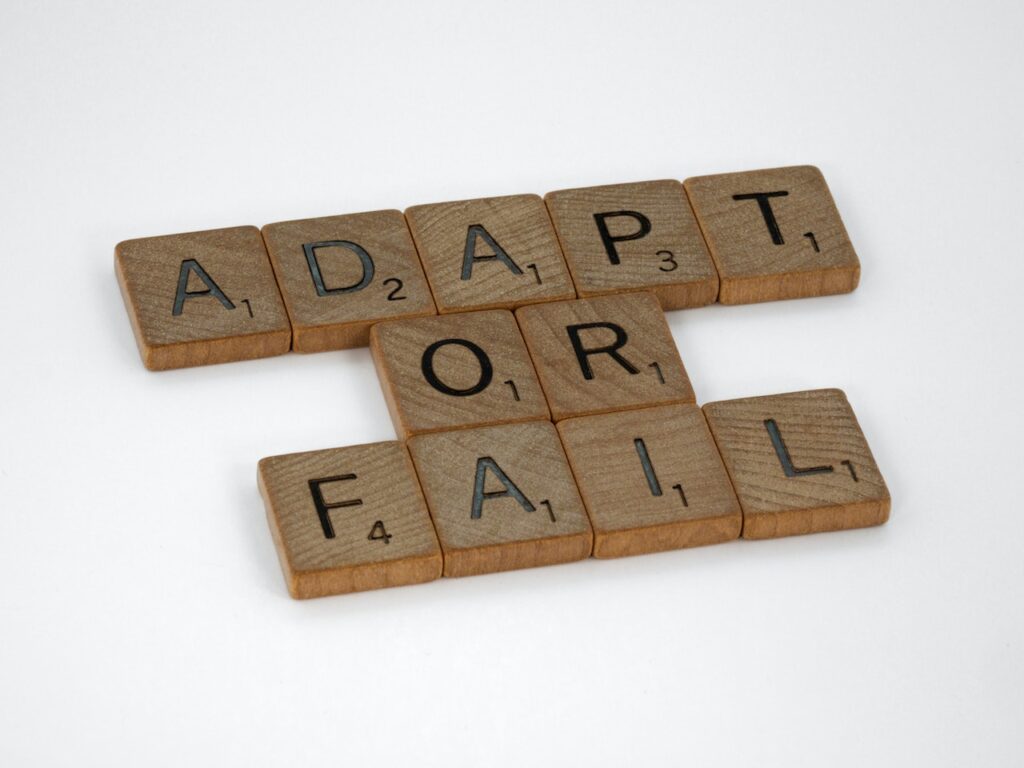As an International Baccalaureate student, you know that Internal Assessments (IAs) are an essential part of your IB Diploma. These assessments are an opportunity for you to showcase your knowledge and skills in your chosen subjects. However, failing an IA can feel like a disaster, as it can significantly impact your chances of receiving the IB Diploma. In this article, we’ll explore the topic: what if you fail your IB IA?, why students fail, and what you can do to pass your IB class.
Understanding the IB IA Assessment Criteria
The IB IA is assessed based on several criteria, including knowledge and understanding of the subject, research and analysis, application of skills, and communication. Each criterion is assigned a certain weight, and your overall grade is calculated based on these weights. Let’s delve deeper into each of these criteria.
Knowledge and understanding of the subject
Criterion A is all about demonstrating your knowledge and understanding of the subject. To achieve a high grade, you need to show a deep understanding of the topic, using appropriate terminology and concepts. Remember to support your arguments with relevant examples and evidence. Your IA should show that you have a strong grasp of the subject matter, and that you can apply your knowledge in a meaningful way.
Research and analysis
Criterion B focuses on the quality and quantity of research, data analysis, and interpretation. To achieve a high grade, you need to demonstrate that you can conduct thorough research, analyze data effectively, and interpret your findings in a meaningful way. Make sure you use a variety of sources and that your analysis is comprehensive and well-reasoned. Include clear and detailed explanations of your methods and results.
Application of skills
Criterion C assesses your ability to apply your knowledge and skills to solve problems and answer questions. To achieve a high grade, you need to show that you can apply your knowledge in a meaningful way. Make sure you use appropriate methods and techniques, and show how you arrived at your conclusions. Pay attention to the detail and use relevant examples.
Communication
Criterion D is all about how you present your IA. To score high, make sure you use clear, concise language, and present your ideas logically and coherently. Use graphs, charts, and tables to help illustrate your points and make sure to follow the formatting guidelines. Make sure your IA is well-organized, and that your ideas flow logically from one section to the next.
Common Reasons for Failing Your IB IA and How to Avoid Them
Failing the IB IA can be frustrating, but understanding why you failed is essential to ensure you don’t make the same mistake twice. Some of the most common reasons why students fail include lack of understanding of the task, poor time management, insufficient research and analysis, and misinterpretation of the assessment criteria.
Lack of understanding of the task
One of the most common reasons why students fail their IA is that they don’t fully understand the task. Make sure you read the task carefully, and that you understand what is expected of you. If you’re not sure, ask your teacher for clarification.
Poor time management
Time management is critical when it comes to completing your IA. Make sure you give yourself enough time to conduct research, analyze data, and write your IA. Set realistic goals and deadlines, and make sure you stick to them.
Insufficient research and analysis
Another common reason why students fail their IA is that they don’t conduct enough research or analyze their data thoroughly. Make sure you use a variety of sources, and that you analyze your data in a meaningful way. Don’t be afraid to seek help from your teacher or a tutor if you’re not sure how to proceed.
Misinterpretation of the assessment criteria
Misinterpreting the assessment criteria is another common reason why students fail their IA. Make sure you understand each criterion and how it relates to your IA. If you’re not sure, ask your teacher or a tutor for help. Remember, the assessment criteria are there to help you, not to make things more difficult.
Understanding the Consequences of Failing Your IB IA
Failing an IA can have significant consequences on your overall grade for the subject and your chances of receiving the IB Diploma. Your IA grade counts for a significant percentage of your overall grade for the subject, so failing your IA can significantly impact your overall grade. If you fail more than one IA, you may not be able to receive the IB Diploma. This is because IAs are an essential part of the IB Diploma, and failing them can indicate that you don’t have the required knowledge and skills to earn the diploma.
Retaking IB IA
If you fail your IA, you may be given the opportunity to retake it. This can be a stressful and time-consuming process, but it’s often the best way to ensure you pass your IB class. If you’re given the opportunity to retake your IA, make sure you take the time to understand why you failed and what you can do differently next time. Seek help from your teacher or a tutor, and make sure you give yourself enough time to complete your IA properly.
It’s important to note that retaking your IA may have consequences on your academic schedule, as it may delay your progress to the next level or stage of your studies. Therefore, making the most of the opportunity and ensuring you submit a high-quality IA that meets the requirements and guidelines is essential.
Before retaking your IA, review the feedback you received from your teacher and examiners, and identify the areas that need improvement. Use this information to develop a new research question and methodology, and seek guidance from your teacher or a tutor to help you address the areas of weakness.
Finally, manage your time effectively to avoid last-minute stress and ensure you submit your retaken IA on time. With careful planning and hard work, retaking your IA can be a valuable learning opportunity to improve your academic performance.
How to Pass IB Class After Failing IA
If you fail your IA, don’t panic! There are several things you can do to improve your chances of passing your IB class. Here are a few suggestions:
Seek help from IB IA tutors or mentors
If you’re struggling with your IA, seek help from an IB IA tutor or mentor. They can provide you with personalized support and advice, and help you identify areas where you need to improve. A tutor can help you understand the assessment criteria, conduct research, and write your IA in a way that meets the requirements.
List of related articles:
- Computer Science IA Topic
- Psychology Internal Assessment Topics
- English Literature IA topic ideas
- IB IA Economics topic ideas
- IB Social and Cultural Anthropology IA
- ESS IB IA Topics
- Geography IA ideas
- Global Politics IA topics
- How to write good Internal Assessment?
- What is IA in IB?
- Comparing IB Math IA and Math AA: An In-Depth Look at the Differences and Similarities
- IB Internal Assessment Rubric: Grading Criteria and How to Excel
- Math IA Grading Boundaries – A Guide for IB Math Students
- IB IA submission deadline 2023
Resubmitting the IA
Some schools allow you to resubmit your IA if you fail it. If this is an option for you, make sure you take the time to understand why you failed and what you can do differently next time. Seek help from your teacher or a tutor, and make sure you give yourself enough time to complete your IA properly.
Time management is critical when it comes to completing your IA. Make sure you give yourself enough time to conduct research, analyze data, and write your IA. Set realistic goals and deadlines, and make sure you stick to them. Planning is also essential, so make sure you have a clear plan for each section of your IA and that you stick to it.
Don’t let the stress of choosing an IA topic
hold you back.
Are you struggling to come up with topic suggestions for your IB Internal Assessment?
Our experienced writers can help you choose the perfect topic for your IA
Tailored to your specific subject and requirements.
Simply click:

IB IA Appeals Process
If you’re unhappy with your IA grade, you can appeal the decision. This process involves requesting a re-mark of your IA by an independent examiner. Make sure you have strong evidence to support your appeal, such as additional research, and follow the guidelines provided by your school.
It’s important to note that the appeals process can be a lengthy one, and there’s no guarantee that your grade will change. However, if you believe that your IA was unfairly marked, or that there was an error in the grading process, an appeal may be your best option. It’s important to act quickly, as there is often a deadline for appeals. Make sure you read the guidelines carefully, and provide all the necessary information and evidence to support your appeal. This might include additional research or data that you did not include in your original IA, or feedback from your teacher or tutor. Remember that the appeals process is designed to ensure that you receive a fair and accurate grade, so don’t be afraid to use it if you feel that you’ve been unfairly marked.
Conclusion
In conclusion, failing your IB IA can feel like a setback, but it doesn’t mean you can’t recover. Feel free to use IBWritin gservice.com assigment help in case of questions. By understanding the assessment criteria, identifying the reasons for failure, and seeking help, you can improve your chances of success. What if you fail your IB IA? Remember, don’t be afraid to ask for help, and don’t give up! With determination and hard work, you can pass your IB class and earn your IB Diploma.




